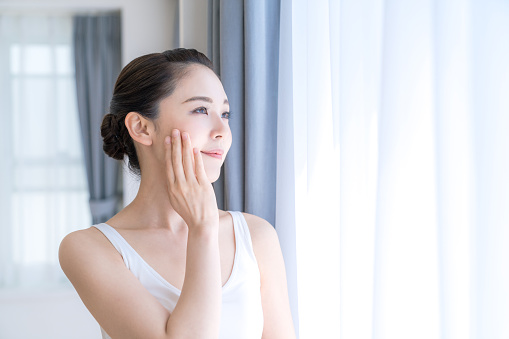The sun is an excellent source of Vitamin D, but you should be wary of its side effects. It can damage your skin, causing blemishes, as well as increase your risk of developing cancer. However, it can also help you get a tan. Use sunscreen to protect your skin from the sun’s harmful rays, and make sure you use non-comedogenic products, so your pores do not get clogged.
Avoid the sun
If you have acne, avoid the sun. It can worsen the problem, causing dark spots on the skin after a pimple has healed. In addition, sun exposure can increase your risk of developing skin cancer and premature aging. Moreover, the UV rays from the sun can also increase the amount of sebum that your skin produces. And when it comes to acne medications, the skin becomes even more sensitive to ultraviolet light.
Extended sun exposure can lead deeper wrinkles and worsen the skin condition
The sun is beneficial for acne sufferers. While excessive sun exposure can cause a deep redness, it can lead to sunburn, making the condition worse. In addition to causing skin cancer, prolonged sun exposure can lead to deeper wrinkles. It is a hazardous idea. Taking precautions will help you keep your skin healthy and clear. But always remember that the sun can damage your skin.
It is important to remember that the sun is a good thing. The sun can help clear up acne lesions, but it can also worsen the skin condition. It is a powerful barrier that keeps out dirt and moisture and prevents infection and bacteria. It also contains proteins that can fight off the infection. For this reason, it is essential to avoid prolonged exposure to sunlight, even if it is not necessary.
For some people, sun exposure can heal their acne scar
Although the sun can cause acne to worsen, it can also have many benefits. For one thing, the sun can trigger the growth of bacteria, which leads to the development of acne. Moreover, the sun may also cause deep wrinkles and skin cancer. The skin may also be more prone to sunburn if you have a fair complexion. In some cases, exposure to sunlight can even help heal an acne scar.

Portrait of Japanese man.
You can still stay under the sun only if you don’t have allergies
The sun can also cause acne to worsen. It can make your skin dry, which prompts it to produce more sebum, leading to more breakouts. The longer you stay in the sun, the more damage the skin will suffer. It is not the case for those who have healthy skin, however. A little sun exposure in the summer is fine if you have no allergies. However, it can cause a severe allergic reaction, which can worsen their condition.
The sun prevent acne lesions
In addition to treating acne, the sun can help you prevent the formation of acne lesions. The skin is a powerful barrier that protects the body from ultraviolet radiation. The sun can even make your skin darker, leading to a darker scar. It is an essential question to answer – does the weather affect your skin? Do you want to get the best treatment for your skin?
Sun can make your skin dry
In addition to the benefits of vitamin D, sunlight can also make your skin dry. It causes your skin to produce more sebum, which leads to more breakouts. The sun can also increase your risk of developing skin cancer when you have acne. The sun can also cause your acne scars to darken. While the sun can help you treat acne, it should never be used to treat any acne. The sun can worsen your condition.
Despite its benefits, the sun can also damage your skin. The UV rays can make acne lesions worse. While the sun may reduce your redness and make your skin less sensitive to sunlight, it can also cause you to develop dark, permanent scars. In addition, overexposure to the sun can damage your skin and make it more prone to skin cancer. You should be aware of the risks and choose a sunscreen with a sunscreen that offers protection from the UV rays.

